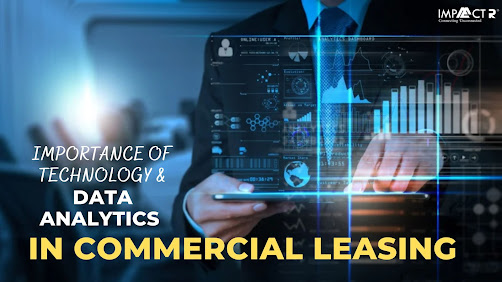Differences Between a Retail Lease vs. Commercial Lease
Many people are not aware of the differences between a retail lease and commercial lease. A commercial lease is used for offices, warehouses, or any other type of business space that has more than one tenant.
Retail leases are typically used to rent out spaces in malls, strip malls, grocery stores etc. The key difference is that with a retail lease you have to pay an additional percentage on top of your monthly rent fee called "percentage rent."
This means if the mall's occupancy rate falls below 80% then you will be charged extra as well as paying your regular monthly rental fees. With a commercial lease you do not need to worry about this because it only applies to retail leases and there would never be less than 10 tenants in such a large building like this.
When you are signing a lease for your business, it is important to read through the fine print in order to avoid any surprises later on. For both leases there are always going to be clauses that can be included or excluded depending on what each party negotiates.
Also note the dates when rent payment is due and when you have access to the building so you do not inconvenience your landlord by needing something early or miss out on an opportunity because you don't have access yet.
Depending on the city where your business is located in will determine if they allow split payments in which in some cases if you are renting retail space then this may not apply since its occupancy rate can change depending how many tenants are open.
This could cause problems come renewal time so if you are planning on staying in your business space for a long period of time then be sure to negotiate this early on.
Commercial leases are only 6-12 pages compared to retail leases which can have upwards of 50 pages at times, especially if you are negotiating with an attorney.
The shorter the better since they tend to be more straight forward and obvious as far as what is expected from both parties involved.
Business owners should never sign a commercial lease without reading it very carefully as sometimes landlords will try and sneak certain things into the contract that can come back to hurt them later on such as their ability to evict tenants if the occupancy falls below 80% or 90% depending on their state laws.
You should avoid listing your company name anywhere on the lease, this will avoid any issues with your business partners or if you want to de-list yourself from a certain store space in order to eliminate extra costs.
There are several different types of commercial leases but the most common is triple net meaning that you have to pay taxes, insurance and maintenance fees on top of what you are paying for rent.
There are also modified gross leases which requires no repairs on the part of the tenant but they would still have to pay their respective amount for taxes, insurance etc…
Also some buildings have shared utility bills so tenants split all water, gas etc.. charges based on square footage. Since there are so many different variables involved it is difficult for anyone outside of an attorney specializing in commercial real estate to know all the laws in each state when it comes to commercial leases.
That is what makes an attorney so valuable, they are familiar with local and state laws when it comes to these types of leases which can save you time, money, headaches in the long run.
Blog Post Conclusion
Bottom line, the key difference between a retail lease and commercial lease is that with a retail lease you have to pay an additional percentage on top of your monthly rent fee called "percentage rent."
This means if the mall's occupancy rate falls below 80% then you will be charged extra as well. If this sounds confusing or intimidating, don't worry! We are happy to help walk through all the details involved in deciding which type of leasing contract best suits your needs.
Our team of experts can provide assistance at every step along the way - from determining whether renting makes sense for your business model or not, to finding out how much space you need, negotiating terms and more. Contact us today so we can get started helping make sure your business is set up for success!
.jpg)

Comments
Post a Comment